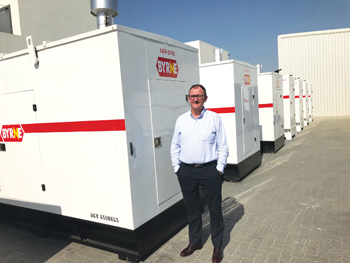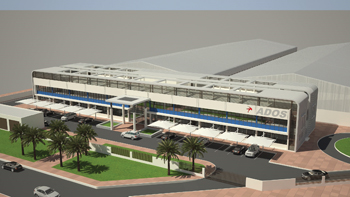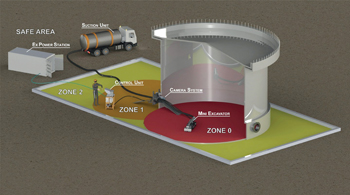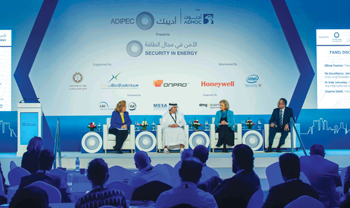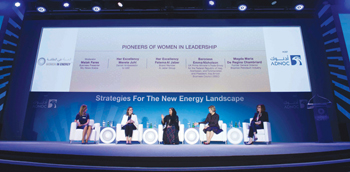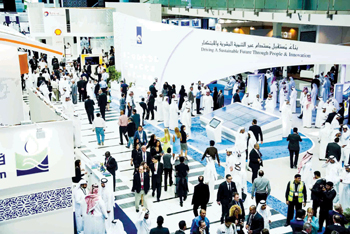
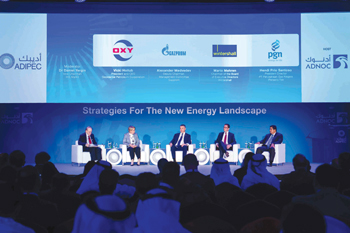 Adipec’s strategic conference programme will include several ministerial sessions
Adipec’s strategic conference programme will include several ministerial sessions
Adipec’s 2017 strategic programme has been restructured. An expanded programme recognises the conference’s high-level participants command businesses
An expanded and restructured strategic conference programme at the world’s leading annual meeting for senior oil and gas decision makers, the Abu Dhabi International Petroleum Exhibition and Conference (Adipec), will play a vital role in driving strategic investment decisions across the industry’s full value chain, organisers say.
Investment in refining and selling the oil and gas industry’s end products, such as fuel, plastics, and petrochemicals, is emerging as a core business strategy among Middle East national oil companies (NOCs) wanting to capture more of the processed value of their natural resource.
Adipec’s 2017 strategic programme will be restructured to reflect this change. An expanded programme recognises the conference’s high-level participants – who include some of the world’s most powerful oil and gas CEOs – command businesses that cover the full scope of upstream, midstream, and downstream operations.
"Adipec’s guiding purpose is to be the convening power for the global industry, a platform where the industry’s leading CEOs define and refine their strategic direction," says Ali Khalifa Al Shamsi, Al Yasat CEO and Adipec 2017 Chairman. "Although exploration, production and export of crude oil remain the foundation of the region’s NOCs, today’s business models increasingly look beyond this, making downstream investments that accumulate benefits through each value-added process. Adipec is committed to acting as a driving force in support of this evolution."
Adipec’s strategic conference programme will include several ministerial sessions and four global business leader sessions, offering panel discussions and interviews with some of the senior government and industry decision makers who are shaping the future of oil and gas. An additional four downstream global business leader sessions will focus exclusively on value-added processes. Specialised sessions within the conference programme will offer knowledge exchange in areas such as security, the offshore and marine sector, and the role of women in the energy industry. For C-level delegates, there will be 10 C-suite dialogues, offering highly exclusive, interactive panel discussions of critical business issues. As well as the strategic conference, Adipec offers oil and gas professionals 119 technical sessions catering to all aspects of the industry.
The conference programme sits alongside a world-class commercial exhibition and offers unrivalled one-to-one business networking opportunities, confirming Adipec as a deal-making hub where the industry’s most influential decision makers find connections and forge partnerships that will drive future growth.
As a platform for discussing the industry’s most important issues, Adipec consistently adapts to meet leadership concerns. From a strong focus on exploration and production during the pre-2014 period of sustained high oil prices, 2015 and 2016 have emphasised innovation and improved efficiency to reduce immediate costs. The latest changes recognise an industry adapting to a new normal. This sees investment returning to exploration and production in anticipation of rising demand, growing interest in natural gas, and a long-term imperative to add value to the resource.
The emerging business approach seeks to maximise the value of each barrel that NOCs produce, by generating additional revenue from each layer of processing, distribution and sales. As well as generating more revenue, investments along the value chain can smooth out the impact of fluctuations in oil and gas prices, as rising or falling markets affect each layer of the industry differently.
According to analysis by the Boston Consulting Group, low prices for crude oil will often reduce profits for exploration and production, but at the same time will increase profits downstream as inputs become cheaper and buyer demand rises.








































































